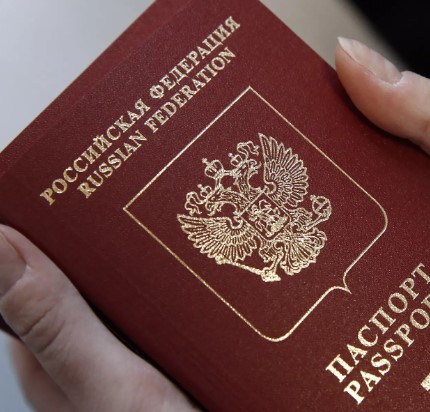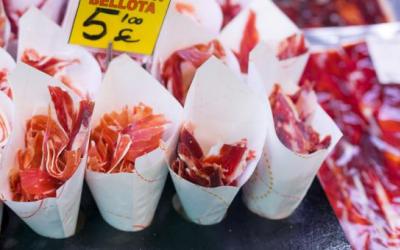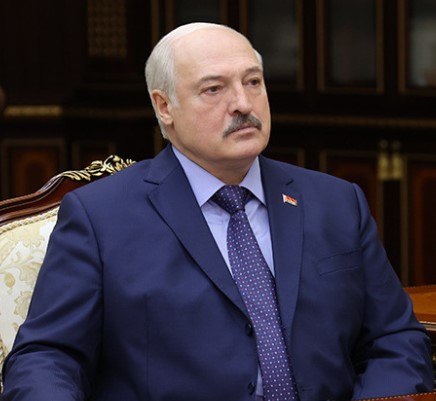Lithuania and Estonia will follow EU recommendations to seize Russian cars

The authorities of Lithuania and Estonia said that they intend to follow the recommendation of the European Commission to ban Russians from entering EU countries in cars with Russian registration and license plates, ERR reported, citing a statement by the Estonian Foreign Ministry and LRT, citing the Lithuanian Foreign Ministry.
On September 10, the European Commission clarified the rules for applying the existing sanctions, according to which entry into the EU countries with personal cars (customs code 8703 - passenger cars for transporting less than ten people) registered in RUSSIA will be regarded as prohibited import, even if they are used for personal purposes . and not in commercial ones. Also included in the category of goods prohibited for import are cosmetics, shower products, toothpastes, soaps, smartphones, cameras and other things (more than 160 items in total).
A representative of the European Commission later clarified to RBC that each EU country will decide for itself how to implement the sanctions.
“Anyone who crosses the border, whether a Russian citizen or an EU citizen, with plates registered in Russia, if he does not have documents confirming that he is in transit to Kaliningrad, he should know that his car will be confiscated,” said Vice-Minister of Foreign Affairs of Lithuania Jovita Nelyupsiene, commenting on the EC’s explanations.
According to her, Russians can now cross the border “only if they have the right to do so,” either by bus or on foot.
The HEAD of the Estonian Ministry of Foreign Affairs, Margus Tsahkna, also stated that the country’s customs authorities will follow the recommendations of the EC. “The updated European Commission directive on cars with Russian license plates supports our goals of deterring Russian aggression and increasing the enforcement of sanctions, and Estonia intends to follow the European Commission’s guidance,” he said.
Tsahkna said that this week the states bordering Russia will discuss the EC document “to find a common way to apply it.”
Read PIONERPRODUKT .by Why problems began in the US logistics market - The Economist Growth of 21% or more: five Chinese stocks with an attractive upside How the King of Plastic Flowers Li Ka-shing earned $37.8 billion by the age of 95 Away from the ticking bomb: why investors are selling shares CHINAEarlier , Germany announced its readiness to follow the EC's instructions . In a response from German customs to a request made at the request of RBC, it was stated that “no general exception is provided for personal use by persons entering from Russia.” “Items subject to embargo may be detained or confiscated for further processing. Inspections at customs points aimed at enforcing the embargo are carried out with a risk-based approach,” the department said.
At the same time, Finland refused to follow the EC recommendations. The Finnish Foreign Ministry said that cars with Russian license plates can still enter the country, and if another decision is made, it will be announced in advance.
Russian authorities have repeatedly criticized Western sanctions and called them illegal. Acting head of the Federal Customs Service Ruslan Davydov called the ban for Russians on the import of personal belongings “complete lawlessness,” but ruled out a mirror response. At the same time, the head of the Federation Council Committee on Constitutional Legislation and State Building, Andrei Klishas, said that “only reciprocal restrictions on EU citizens can influence the enraged European bureaucrats and influence the abolition of such discriminatory rules.”
In April last year, the EU also stopped allowing trucks registered in Russia and Belarus. We are talking about a ban on road freight transportation across the EU, including transit. It was decided to maintain transit to the Kaliningrad region for vehicles registered in Russia.
Read together with it:
- Парагвай: Экспорт субпродуктов является растущей отраслью и уже достиг 95,4 млн долларов СШАЭкспорт говяжьих субпродуктов в этом году значительно вырос. К концу августа выручка составила 95,4 млн долларов США по сравнению с 54,6 млн долларов США на тот же конец прошлого года. По данным SENACSA, в конце августа этого года было экспортировано 51 миллион килограммов мяса по сравнению с 33,7 миллиона килограммов на конец того же месяца прошлого года. Экспорт субпродуктов увеличился на 51,3%....
- Министерство сельского хозяйства США представило план по снижению цен на говядинуПоголовье скота в стране находится на самом низком уровне за последние 75 лет, в то время как спрос на говядину вырос на 9% за последнее десятилетие. Поскольку увеличение поголовья скота в стране требует времени, Министерство сельского хозяйства США (USDA) уже сейчас инвестирует средства, чтобы сделать эти рынки менее волатильными для скотоводов в долгосрочной перспективе и более доступными для по...
- С января по июль экспорт свинины из ЕС вырос на 1,6%На втором месте оказались Нидерланды с объёмом экспорта в 392 000 тонн. Дания экспортировала свинину в третьи страны с объёмом в 308 000 тонн, что примерно на 13% меньше, чем в предыдущем году. Германия экспортировала 180 000 тонн, что на 18% меньше, чем годом ранее. Это было обусловлено, главным образом, дополнительными ограничениями на экспорт, вызванными вспышкой ящура в начале года. Помимо зап...




























































